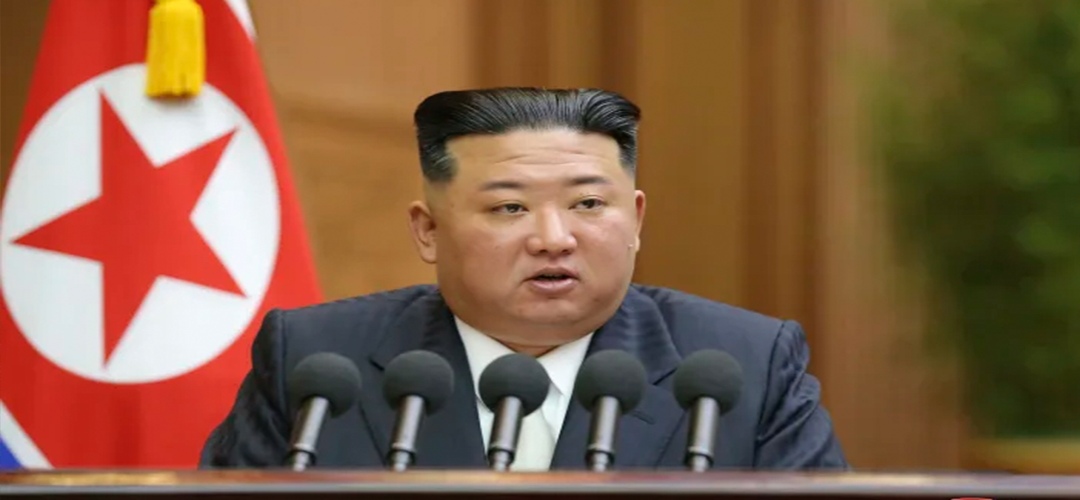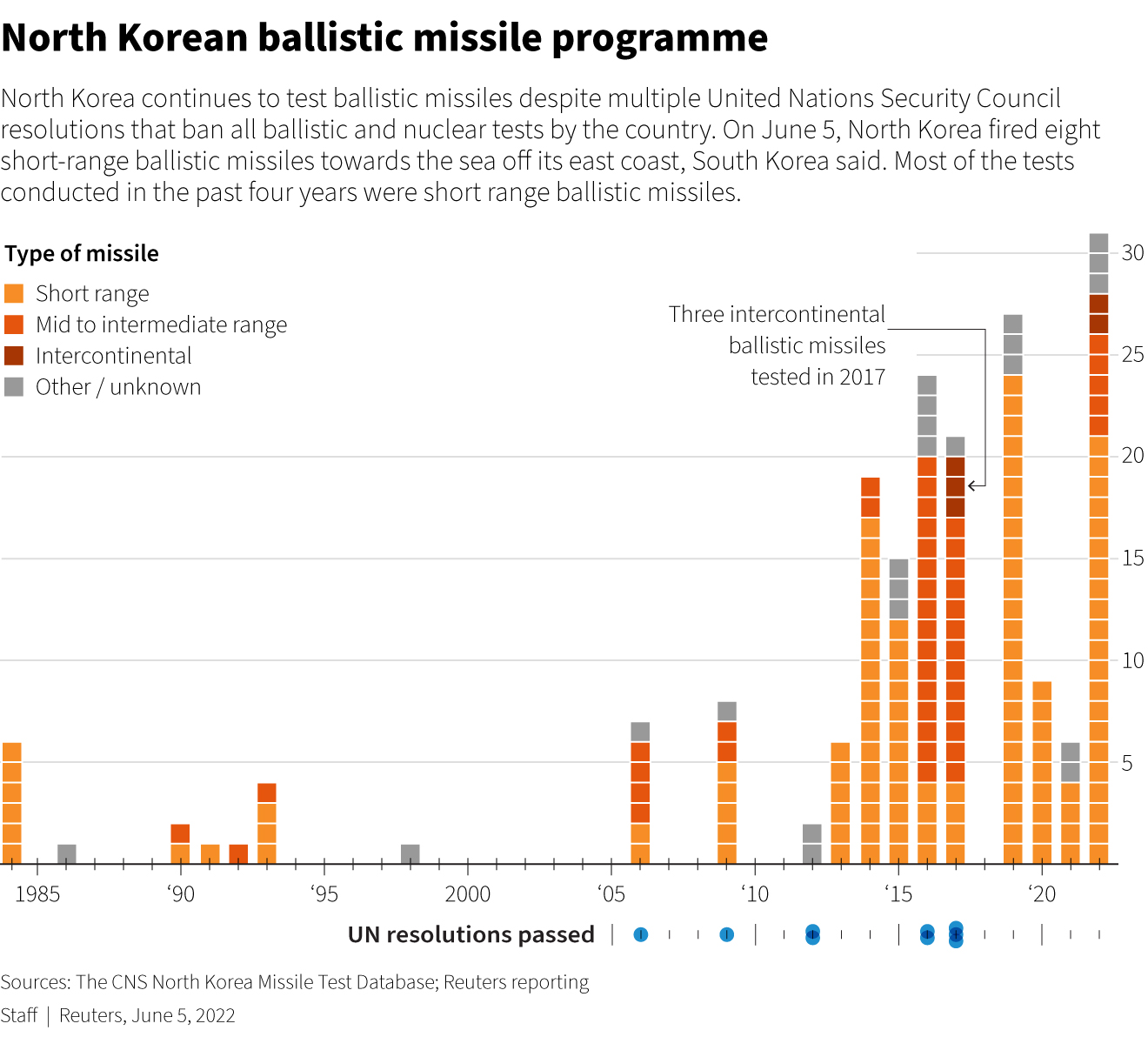HEADING TOWARDS ARMAGEDDON
September 24, 2022 | Expert Insights

Since becoming a nuclear power in 2006, the Hermit Kingdom has used nuclear sabre rattling to deter enemies and gain financial support in times of need. Lately, as the American military activities in South Korea resumed with renewed vigour, the Kim Jung-un regime has become paranoid about a potential invasion.
To dissuade any unexpected move from the U.S. or its allies (South Korea and Japan), the DPRK passed a new legislature on 8th September. The legislature allows the DPRK to execute preventive nuclear strikes automatically and immediately against hostile forces. The law cements the country's nuclear strike policy, making it constitutionally irreversible. And another significant inclusion in the new legislature is a non-transfer clause, which prevents the DPRK from sharing its nuclear technology with other countries.
In his speech to the Supreme People's Assembly, Kim stated, "The utmost significance of legislating nuclear weapons policy is to draw an irretrievable line so that there can be no bargaining over our nuclear weapons." Thus he has slammed the door shut on all future negotiations toward freeing the Korean peninsula from nuclear weapons.
As expected, the U.S, its allies, and the international community have opposed the new legislature. The Biden administration sent an aircraft carrier to join the US-ROK military drills (after three years) in the Korean Peninsula. However, Japan and the ROK have taken a more diplomatic route, with the Japanese PM Kishida extending an invitation to talk to Kim and ROK's PM Yoon urging the UN Secretary-General for a firm international response.
Background
The current episode of the ongoing saga of tensions in the Korean peninsula starts with a cascade of events. In January, the DPRK resumed its medium-range and cruise missile testing after a three-year hiatus. In the following months, banned ICBMs were also tested, provoking a response from the U.S. and the ROK.
Reversing the Trump-era diplomatic measures, the Biden administration decided to resume US-ROK military drills in the Korean Peninsula to strengthen its commitment to the region. Eventually, the military exercises acted as a catalyst for Kim to harden his nuclear stance.
Kim's blatant use of the nuclear wand is well known; however, the changing public opinion in Japan and the ROK after the missile tests and the recent legislature has been unexpected. Both countries have seen widespread proposals for changing their non-nuclear stance. Before his demise, Japan's former PM Shinzo Abe and his supporters immediately rallied the government to acquire nuclear weapons. In the ROK, a poll found that 71 per cent of South Koreans favoured procuring nuclear weapons.

Analysis
The new law permits preemptive nuclear strikes. The timing of this new law seems very apt. The recently elected Yoon Suk-yeol administration in South Korea advocated a tough stance on North Korea policy and has lately strengthened previous governments' plans that permit retaliatory strikes against targets in North Korea..
The unequivocal law makes it evident that Kim has a "single unified command" over the nation's nuclear arsenal. Seoul and other prospective foes predict North Korea may be placed in a bind without a clear nuclear authority structure and unable to carry out a punitive reaction if Kim is taken out in a pre-emptive surgical strike.
Pyongyang hopes the legislation will compel Washington and Seoul to reconsider before challenging DPRK's authority. However, this tactic carries some risk; if anything, it raises the already alarming potential for escalation or misinterpretation during times of crisis. The United States is particularly concerned about this risk because it has long feared being drawn into a conflict.
If North Korea decides to use its nuclear weapons, it will undoubtedly be on the road to self-destruction. Moreover, this could deepen North Korea’s isolation and force Seoul and Washington to "further bolster their deterrence and reaction capacities."
Assessment
- DPRK's stance will provide more room for ROK to substantially increase its pre-emptive attack plan, missile defence, and massive retaliation capacities to dissuade North Korea from using its nuclear weapons. South Korea will also seek a more robust U.S. security dedication with all appropriate alternatives, including nuclear weapons.
- Even as North Korea's nuclear capability continues to develop and the gap between its anti-nuclear philosophy and nuclear-deterrence behaviour widens, this nuclear paradox—arming to disarm—will endure.
- The United States and the Republic of Korea should continue to strive toward the ultimate goal of disarmament because if they do not, North Korea, which wants to be "recognised" for possessing nuclear weapons, will benefit.








Comments